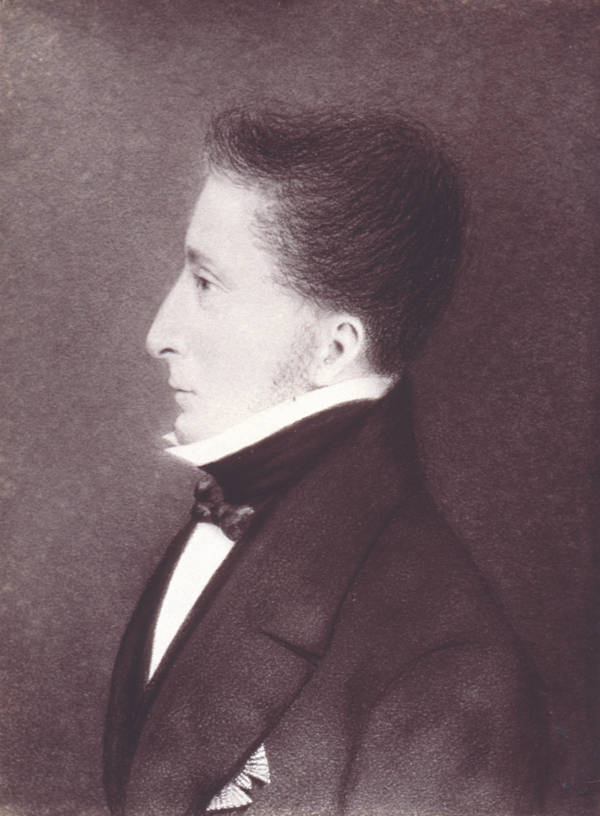- Sir John Eardley-Wilmot, 1st Baronet
Infobox Prime Minister
name =Sir John Eardley-Wilmot,
1st Baronet

birth_date =birth date|1783|2|21|mf=y
birth_place =London ,England ,
United Kingdom
death_date =death date and age|1847|2|3|1783|2|21|mf=y
death_place =Hobart,Van Diemen's Land
spouse =Elizabeth Emma Parry & Elizabeth Chester
order =6th Lieutenant Governor of Van Diemen's Land
term_start =August 21 ,1843
term_end =October 13 ,1846
successor =William Denison
predecessor =John Franklin |Sir John Eardley Eardley-Wilmot, 1st Baronet (
21 February 1783 –3 February 1847 ) was a politician in theUnited Kingdom who served asMember of Parliament (MP) for North Warwickshire and then as Lieutenant-Governor of Van Diemen's Land (later calledTasmania ).Dictionary of Australian Biography|First=John Eardley|Last=Eardley-Wilmot|Link=http://gutenberg.net.au/dictbiog/0-dict-biogWe-Wy.html#wilmot2]Eardley-Wilmot was the son of
John Wilmot (MP) (1748-1815), barrister, and grandson of Sir John Eardley Wilmot,Chief Justice of the Common Pleas . He was educated atHarrow School , called to the bar in 1806, was created abaronet in 1821 and in 1822 published "An Abridgment of Blackstone's Commentaries". This was followed in 1827 by "A Letter to the Magistrates of England on the Increase of Crime", by Sir Eardley Eardley-Wilmot, Bart. F.R.S., F.L.S. and F.S.A. He was a member of the House of Commons, representing North Warwickshire from 1832 until March 1843. In 1840 he attended an international meeting on12 June 1840 on anti-slavery. A large painting in theNational Portrait Gallery records that event and Eardley-Wilmot is shown with Dr Stephen Lushington, a judge, behind the main speaker. [http://www.npg.org.uk/live/search/portrait.asp?LinkID=mp00069&rNo=0&role=sit# National Portrait Gallery, London] accessed14 July 2008 ]Eardley-Wilmot was appointed lieutenant-governor of
Van Diemen's Land , and arrived atHobart on17 August . He probably owed his position to the interest he had taken in the subject of crime; his plea that prisoners under the age of 21 should be segregated and a special endeavour made to reform them suggests that he was in advance of his period.Soon after his arrival he came into conflict with one of the judges by reprieving a prisoner sentenced to be hanged. His justification was that he would not inflict death for offences not on the records of the court, and that in this case only robbery had been proved. He visited various parts of the island and seemed likely to be a popular governor. Many prisoners were arriving, expenses were rising, and the governor was much hampered by instructions received from the colonial office. In 1844 Eardley-Wilmot suggested that the 1842 Act (setting a £1 per acre minimum land price) should not apply in Van Diemen's Land — to which the British government agreed in 1845. He endeavoured to raise the duties on sugar, tea and other foreign goods, but the opposition from the colonists was great and the new taxes were withdrawn. The colonial office was unable to understand that convict labour could not be made to pay its way, and Wilmot was made responsible for the faults of a system he had no power to amend. He endeavoured to save expenses by reducing salaries of officials, but the chief justice for one denied the power of the council to reduce his salary. Six members of the council objected to the form of the estimates and withdrew from the council which reduced the number present below a quorum, and much public feeling arose against the governor.
In April 1846 Wilmot was recalled. The official statements relating to his recall were of the vaguest character, such as that he had not shown "an active care of the moral interests involved in the system of convict discipline". Privately Gladstone, the new colonial secretary, informed Wilmot that he was not recalled for any errors in his official character, but because rumours reflecting on his moral character had reached the colonial office. There was no truth in these charges nor was there time for Wilmot to receive any reply to his indignant denials, and requests for the names of his accusers. He died on
3 February 1847 , worn-out by worry and anxiety. Too late Gladstone endeavoured to make some amends in a letter to one of Wilmot's sons.Wilmot married (1) Elizabeth Emma, daughter of Caleb Hillier Parry, and (2) Elizabeth, daughter of Sir Robert Chester. There were sons and daughters of both marriages. There is a monument in memory of Wilmot at Hobart, erected by public subscription.
References
*Michael Roe, ' [http://www.adb.online.anu.edu.au/biogs/A010329b.htm Eardley-Wilmot, Sir John Eardley (1783-1847)] ', Australian Dictionary of Biography, Vol. 1, Melbourne University Press, 1966, pp 345-346
*raymentFurther reading
*Alexander, Alison (editor) (2005)"The
Companion to Tasmanian History "Centre for Tasmanian Historical Studies, University of Tasmania, Hobart. ISBN 186295223X.
*Robson, L.L. (1983) "A history of Tasmania. Volume 1. Van Diemen's Land from the earliest times to 1855"Melbourne, Oxford University Press. ISBN 0195543645Persondata
NAME=Eardley-Wilmot, John Eardley
ALTERNATIVE NAMES=Sir John Eardley Eardley-Wilmot, 1st Baronet
SHORT DESCRIPTION=British politician; MP and Lieutenant-Governor of Van Diemen's Land
DATE OF BIRTH=21 February 1783
PLACE OF BIRTH=
DATE OF DEATH=3 February 1847
PLACE OF DEATH=
Wikimedia Foundation. 2010.
